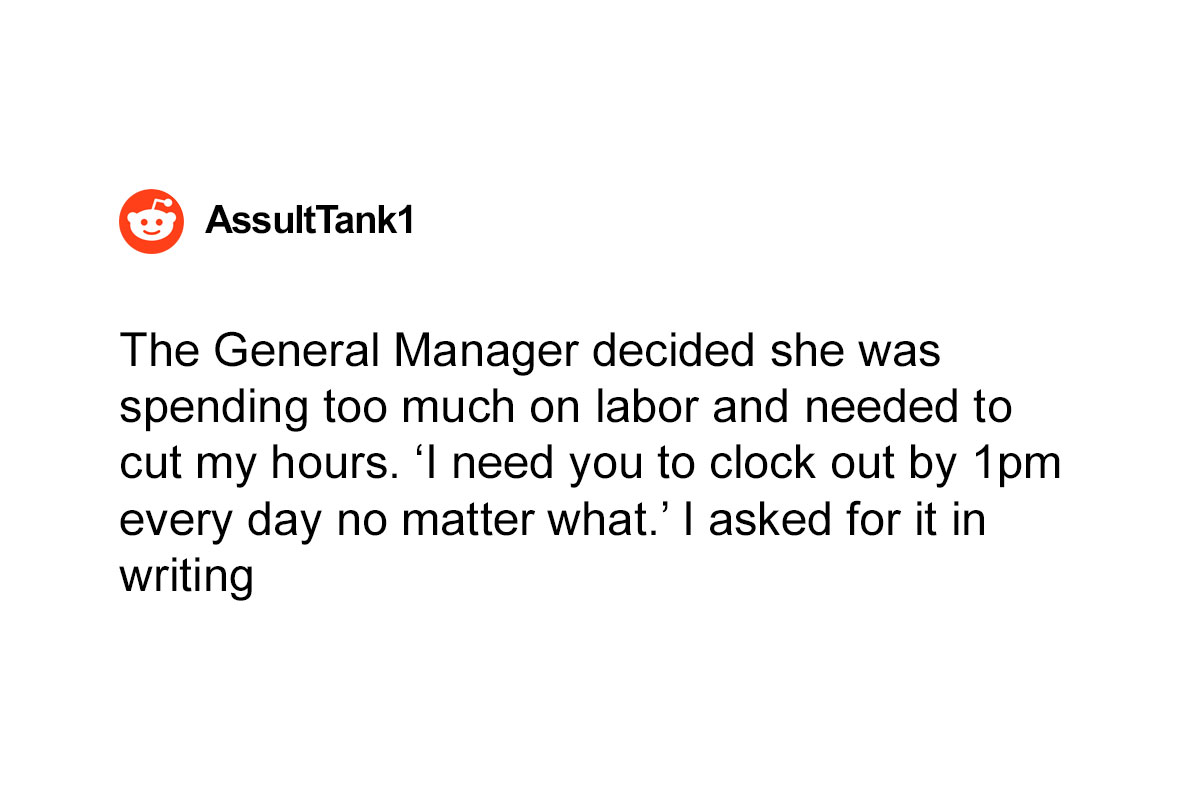
Worker Complies With Manager’s Demand To Be Off The Clock By 1 PM, Teaches Her A Lesson
Ideally, if there’s a problem at work, the employees and managers would sit down for an honest chat and find some sort of compromise. Alas! Diplomacy doesn’t always work. Sometimes, in order for leaders to realize that they’re in the wrong, they need to taste the consequences of their decisions. Especially in the food service industry.
Redditor u/AssultTank1, who works as a pitmaster at a BBQ restaurant, recently went viral on r/MalciousCompliance. They shared how they used a dash of documentation and a sprinkle of creativity to teach their manager a lesson after she cut down their work hours in order to save costs. Check out the full story, including how people reacted to it, below!
Some bosses aren’t aware of how their actions will affect not only their staff but the business as a whole
Image credits: Wavebreakmedia (not the actual photo)
A restaurant employee revealed how they followed their manager’s request to the letter to teach her a lesson
Image credits: Eugene Kim (not the actual photo)
Image credits: AssultTank1
Keeping a paper trail is one of the best things you can do at any workplace
The OP’s story showed two things. First of all, that some managers are unaware of the real consequences of their actions until they actually play out in reality. They need to be willing to concede that their plans might not be perfect, and learn to actively listen to their subordinates’ needs and opinions.
And secondly, how it’s absolutely essential to get everything important in writing. If there’s a paper trail with everyone’s promises and agreements, you have a stronger foundation to stand on if there are disagreements in the workplace. Without evidence, all you have is a “he said/she said” situation where the person who’s more persuasive or has more clout wins.
Verbal agreements can and do hold some weight depending on where you work, but it’s always best to get everything in writing. So if you have an important meeting with your boss, you could follow it up with an email or message, thanking them and briefly outlining what was discussed.
Image credits: Ketut Subiyanto (not the actual photo)
Without a properly cleaned kitchen area, there is no restaurant
The consequences, in this particular case, were a messy kitchen area. Anyone who’s ever worked in the restaurant and food service industry knows just how important hygiene is. Heck, all jokes aside, it should be the highest priority for the staff. No matter how tasty your food is, you can’t function without a spick and span kitchen. Without cleanliness, and the staff to ensure it, there is no restaurant.
Food items like raw chicken, seafood, eggs, milk, and flour can go bad very quickly. So it’s important to utilize them ASAP and thoroughly clean the area and kitchen inventory.
It’s recommended that the restaurant staff mop the floors, and clean the food preparation areas, sinks, storage areas, and walk-in fridges every day. They should also take out the trash, clean the garbage cans, and clean the grills, fryers, and toasters, as well as any coffee makers and beverage machines at the restaurant, daily.
Image credits: RDNE Stock project (not the actual photo)
Great managers understand their employees’ struggles and look for ways to support them
According to Chron, if your boss tries to cut down your hours, you should try to get to the bottom of things ASAP. Talk to your direct supervisor about what’s happening and why. Hopefully, they can give you an adequate explanation.
It’s essential that you know your rights as a worker here. Check with the local labor laws and your contract, whether your manager has to give you an advance warning before reducing your hours (and if they can do that at all).
If there are any obvious breaches, consider talking to your HR department (if there is one), getting in touch with a labor union, or seeking legal advice. Alternatively, a bit of malicious compliance can also set things right, at times. However, if management is unwilling to restore your hours, you may want to consider finding a different, more stable, better-paying job.
As we’ve covered on Bored Panda recently, the best managers are often very empathetic and understand the issues and challenges that their employees face. That way, they can support their staff better and solve problems before they get out of hand.
Other qualities that make a great workplace leader include flexibility and charisma. Meanwhile, employees tend to dislike micromanagers who observe and judge every tiny little move they make.
Image credits: Alexander Suhorucov (not the actual photo)
Many readers loved the story. Here’s what some of them had to say about the work drama
Other internet users shared their own dealings with subpar managers
I wonder if the District Manager hadn’t come in after a week how bad it would have gotten with the General Manager refusing to admit she was wrong / how many weeks it would take before she finally admitted she was wrong.
Probably until whenever the next health department inspection happened, because I can't imagine they're fans of dried blood all over the floor and rotten meat stuck to the walls.
Load More Replies...Particularly if they are members of the family who own it. Even second cousins twice removed.
Load More Replies...I wonder if the District Manager hadn’t come in after a week how bad it would have gotten with the General Manager refusing to admit she was wrong / how many weeks it would take before she finally admitted she was wrong.
Probably until whenever the next health department inspection happened, because I can't imagine they're fans of dried blood all over the floor and rotten meat stuck to the walls.
Load More Replies...Particularly if they are members of the family who own it. Even second cousins twice removed.
Load More Replies...
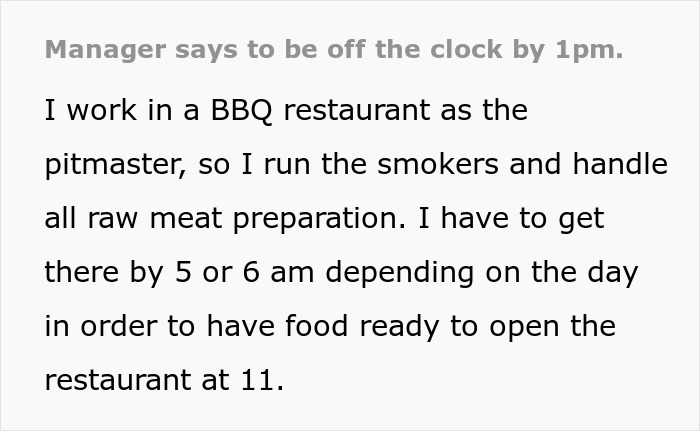
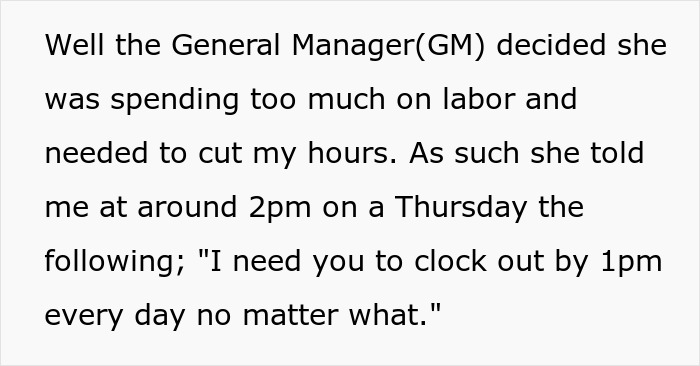
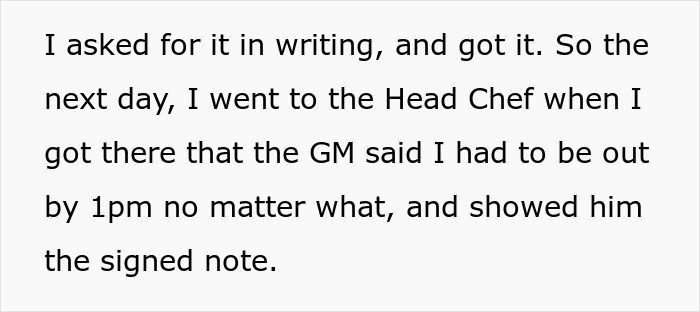
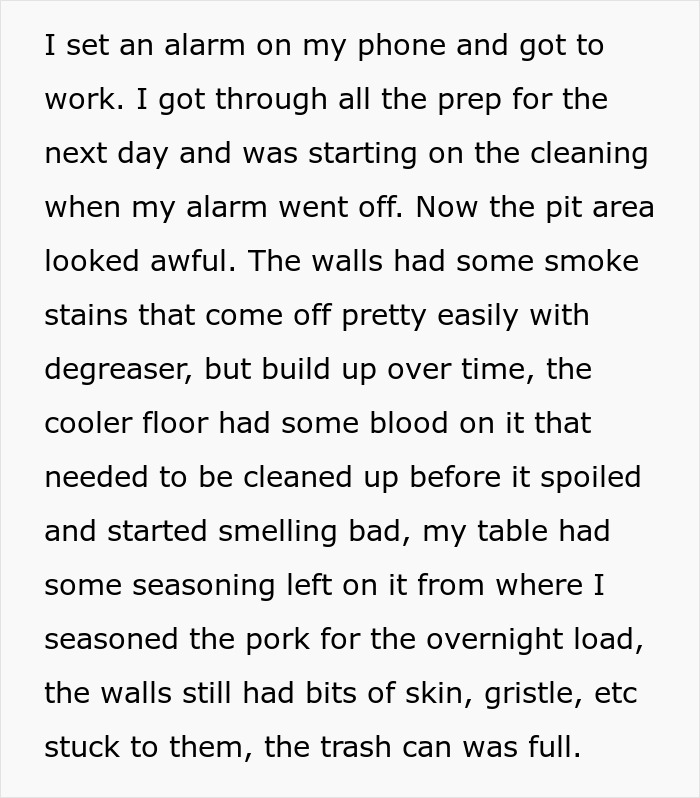
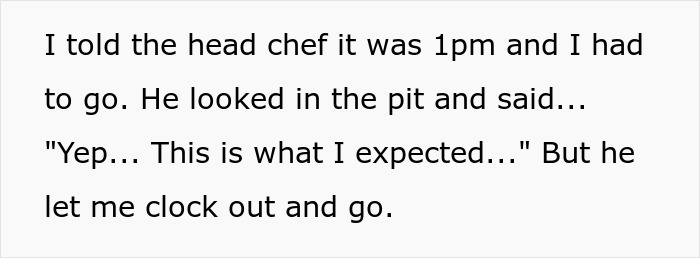

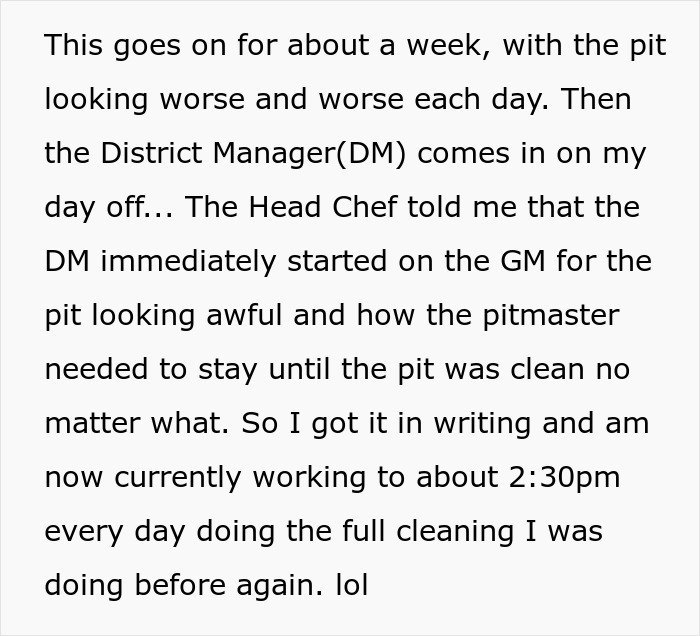

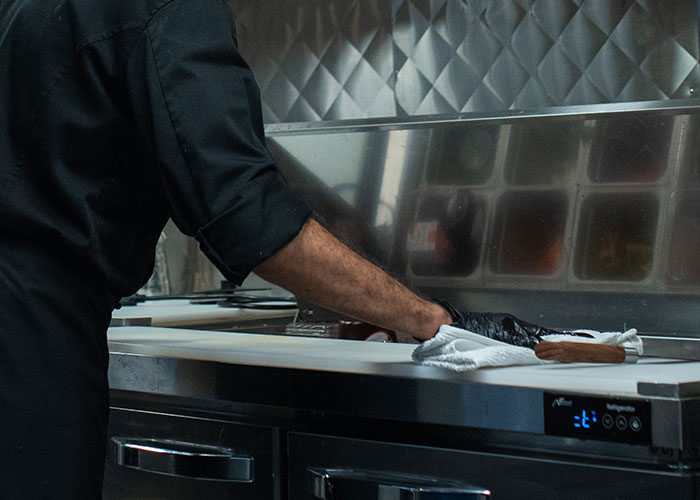

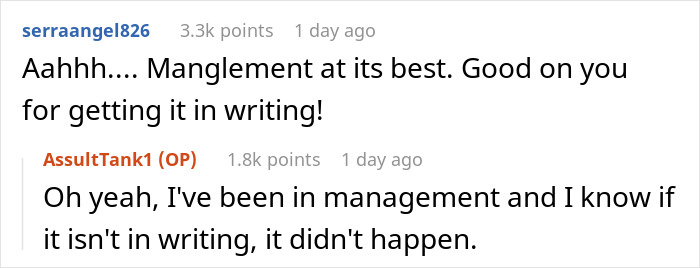
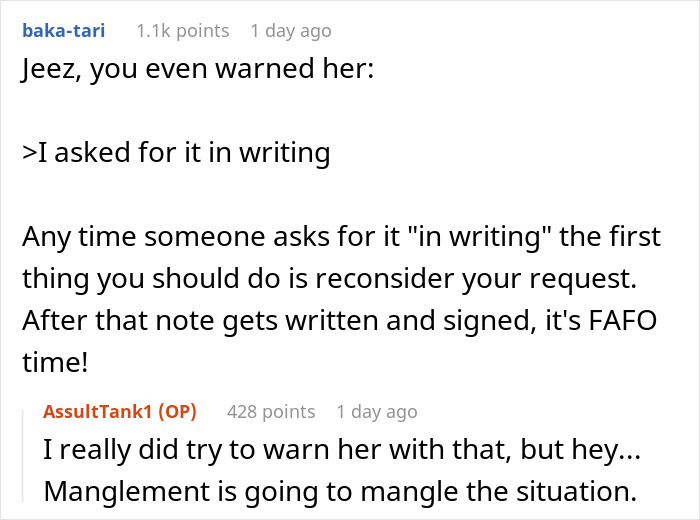
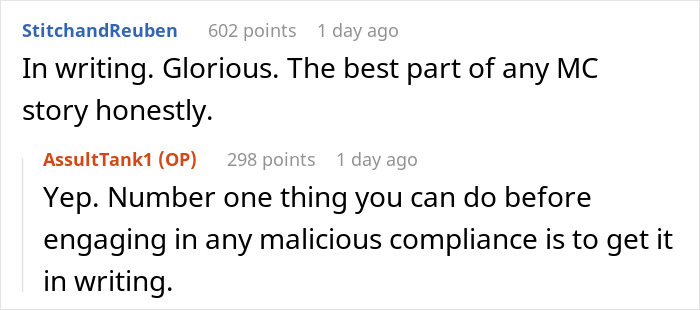
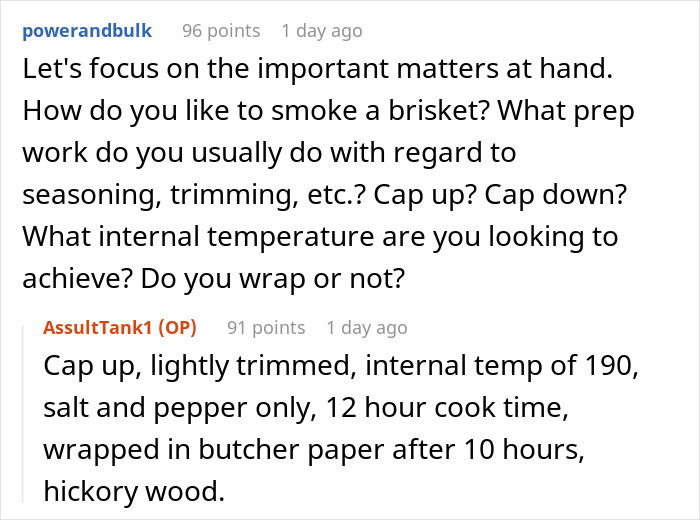
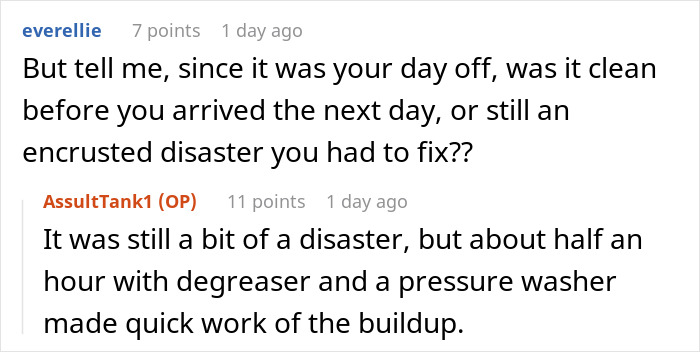
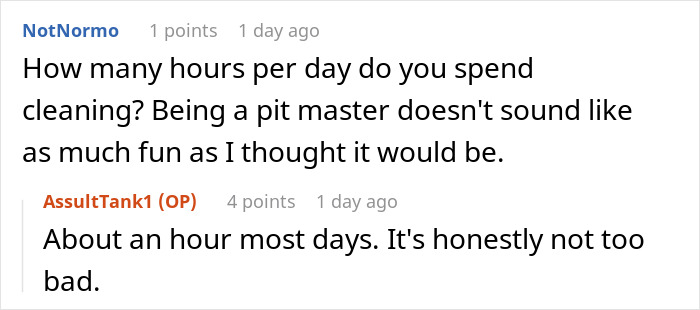
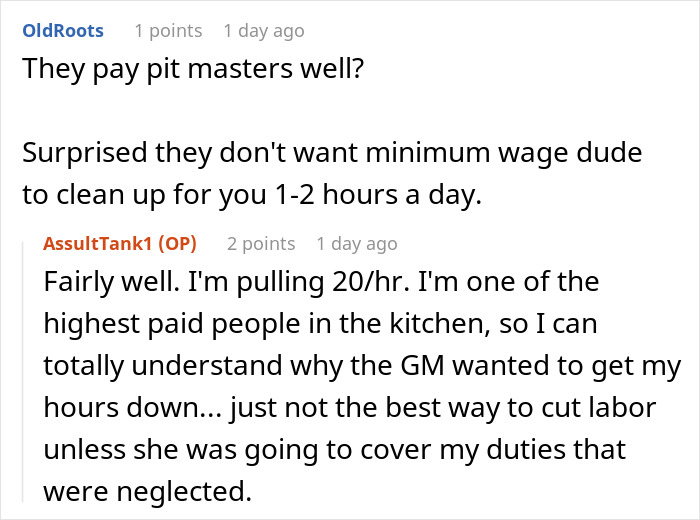

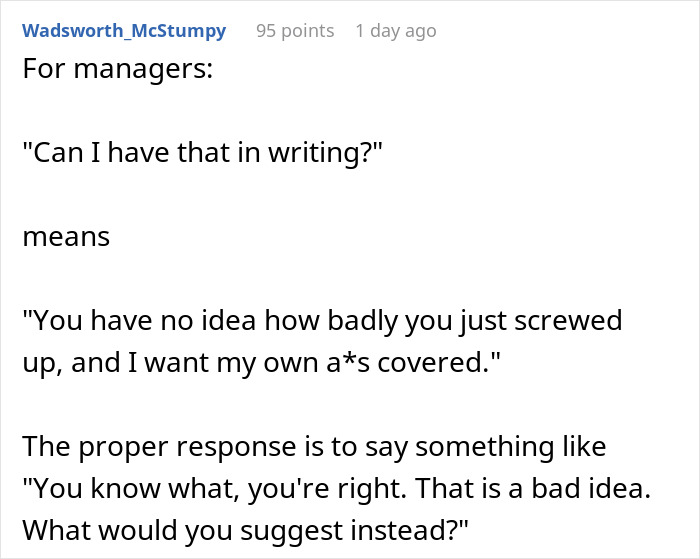
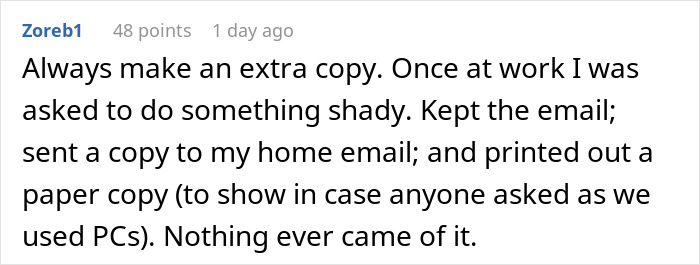

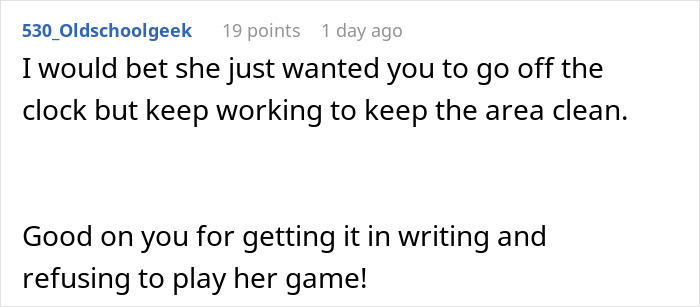





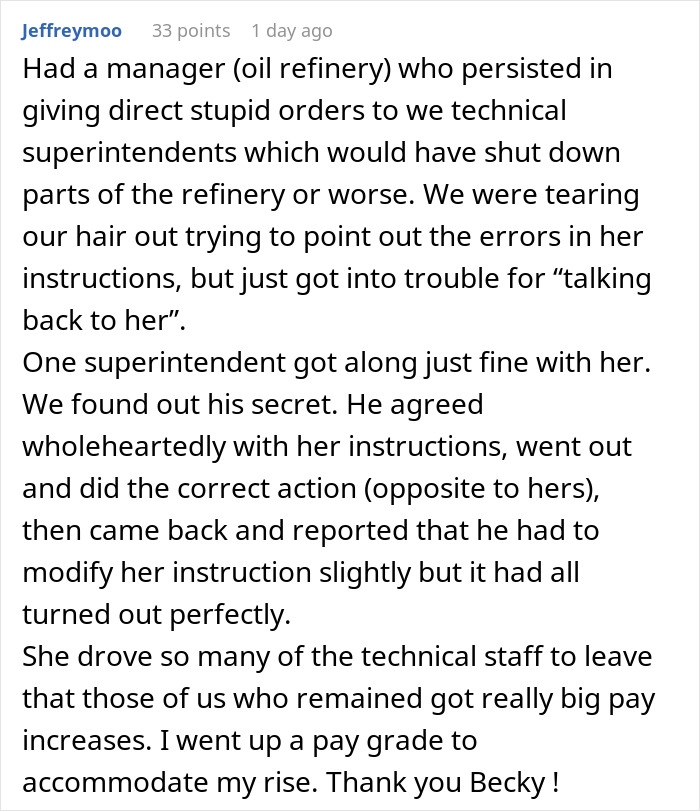
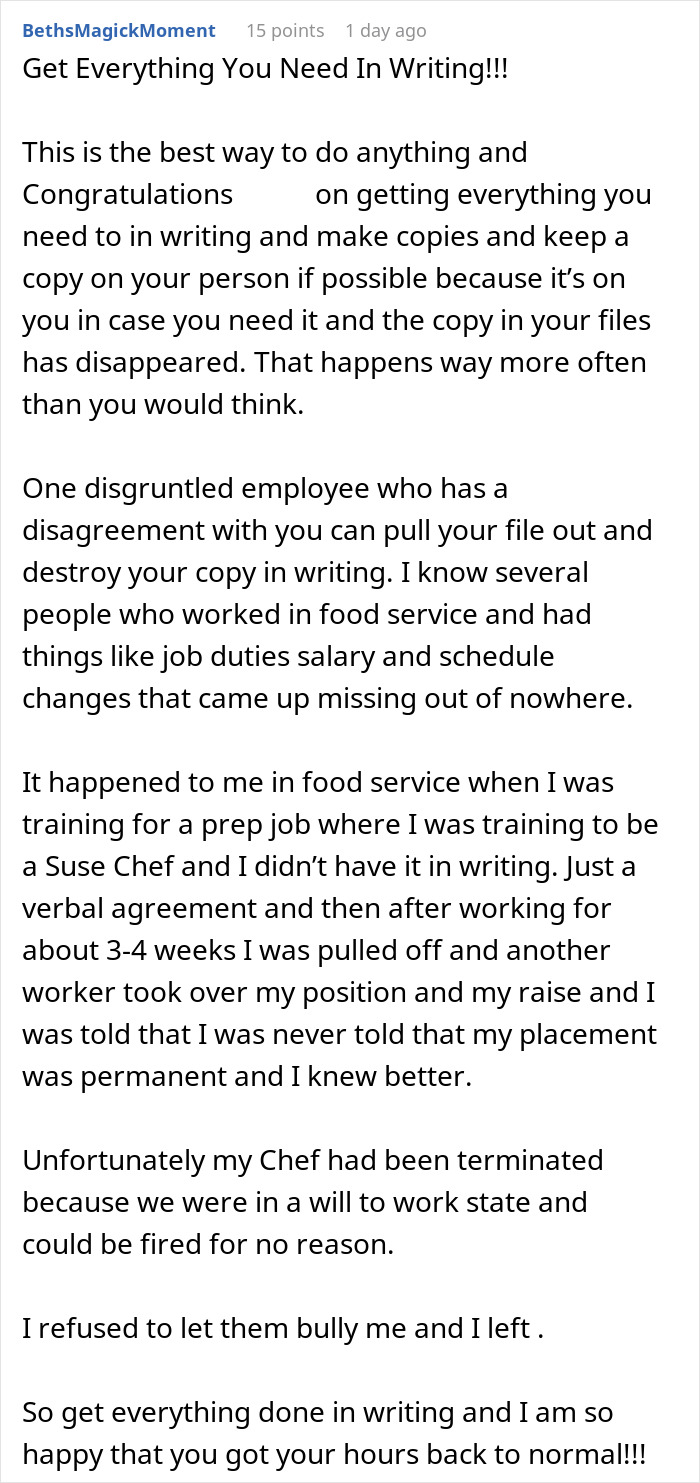
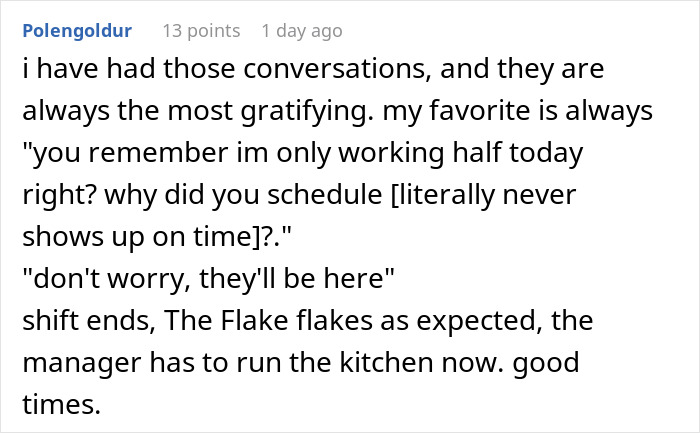




54
21